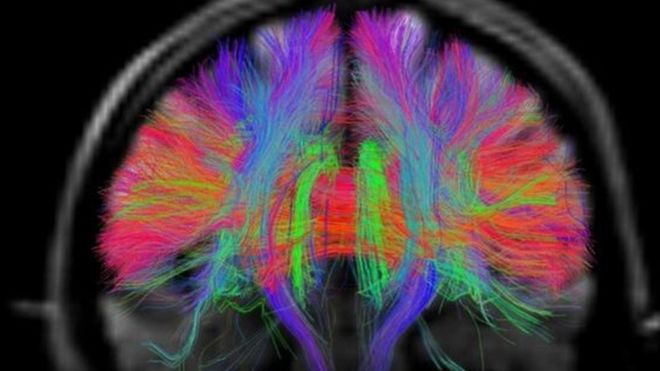Chemicals repair damaged neurons in mice
4 || risingbd.com

Risingbd Desk: New results suggest ageing brains can potentially be rejuvenated, at least in mice, according to researchers.
Very early-stage experiments indicate that drugs can be developed to stop or even reverse mental decline.
The results were presented at the 2019 meeting of the American Association for the Advancement of Science.
The US and Canadian researchers took two new approaches to trying to prevent the loss of memory and cognitive decline that can come with old age.
One team, from the University of California, Berkeley, showed MRI scans which indicated that mental decline may be caused by molecules leaking into the brain.
Blood vessels in the brain are different from those in other parts of the body. They protect the organ by allowing only nutrients, oxygen and some drugs to flow through into the brain, but block larger, potentially damaging molecules. This is known as the blood-brain barrier.
The scans revealed that this barrier becomes increasingly leaky as we get older. For example, 30-40% of people in their 40s have some disruption to their blood-brain barrier, compared with 60% of 60-year-olds.
The scans also showed that the brain was inflamed in the leaky areas.
Prof Daniela Kaufer, who leads the Berkeley group, said that young mice altered to have leaky blood-brain barriers showed many signs of aging. She discovered a chemical that stops the damage to the barrier from causing inflammation to the brain.
Prof Kaufer told the news agency that not only did the chemical stop the genetically altered young mice from showing signs of aging, it reversed the signs of aging in older mice.
"When you think of brain aging you think about the degeneration of cells and losing what we have," she said.
"What these results show is that you are not losing anything. The cells are still there and they just needed to be 'unmasked' by reducing the inflammation."
In another study, Canadian researchers also said they could reverse cognitive decline in mice using an alternative approach.
They targeted a brain cell known to be a "weak link" in many brain disorders. The so-called somatostatin-positive neurons, which are involved in coding information, are the first to fail. The signals from these cells are too weak to be received by surrounding neurons, which would relay the information to other parts of the brain.
Prof Etienne Sibille, from the University of Toronto, identified a chemical that essentially amplifies the signal. He presented results that showed that older mice who could not find their way around mazes were able to do this after they were given the chemical, just as well as younger mice not given the drug.
Prof Sibille said he was hoping to begin clinical trials on human patients in two years' time.
"If people have a cognitive deficit we would potentially be able to bring them back to higher functioning."
The big caveat is that the vast majority of treatments that show promise in mice don't work on humans. But both scientists believe that this time it might be different.
Prof Sibille said he was heartened by the fact that the chemical repaired damaged neurons when it was given to mice. And Prof Kaufer said she believed that such work really could lead to a brain rejuvenation pill.
"People get jaded when they hear that things work on mice and then it is tried on humans," she said. "But I think there is something different and exciting about this story in that it explains a new biology.
"It looks at brain function in a different way. It is about mechanisms that have been neglected and not thought about before."
Source: BBC
risingbd/Feb 15, 2019/Mukul
risingbd.com























